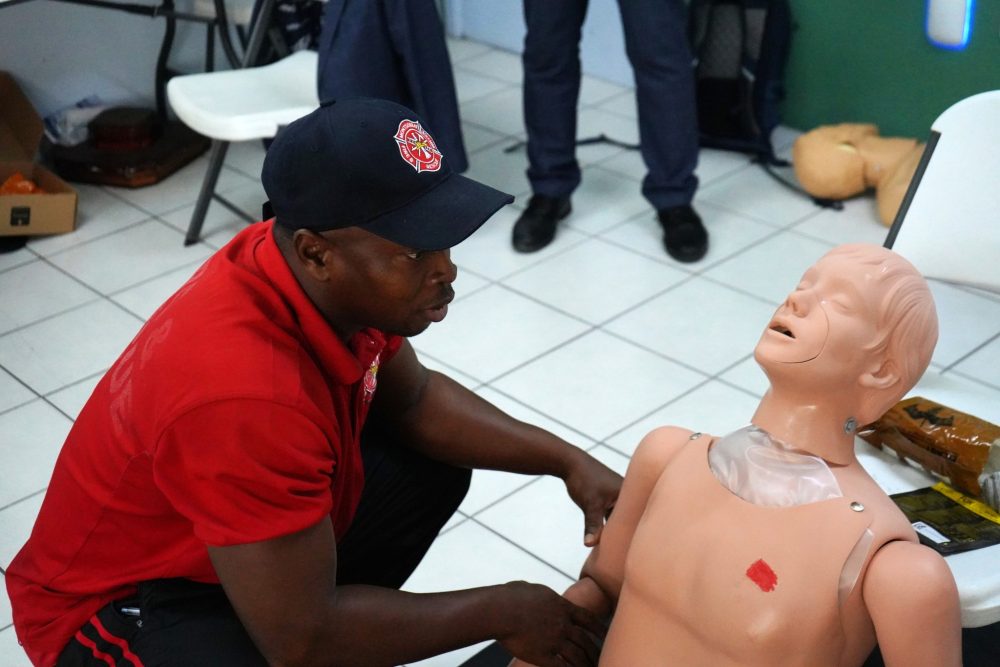Cable and Wireless Shifts Focus to Delivering Promised Benefits
by Bevil Wooding

As Cable and Wireless Communications Plc (CWC) and Columbus International Inc. (Columbus) prepare for operations as a new, enlarged entity, the Caribbean awaits first signs of how their promise of being “Better Together” will actually play out.
Since the deal for CWC to acquire Columbus for US$3.025 billion was announced last November, the two regional telecommunications providers have been on a campaign to convince consumers, competitors, regulators and investors that their union will be “transformational for CWC and Columbus and beneficial for customers and the wider economies across the Caribbean.” It has not been an easy sell.
The message of the two companies being “Better Together” has been met with cautious optimism in some quarters and in other cases with fear, skepticism and outright opposition. The shadow of Cable and Wireless’ past and the uncertainty of the telecom-sector’s future have given occasion for region-wide concern.
In the 5 countries in which their operations overlapped, the companies had to make extra effort to convince wary governments and consumers that merging their operations will not signal a return to the dark, dreaded era of Cable and Wireless as a monopoly provider, with attendant high prices, poor service and limited innovation.
CWC seems to have convinced regulators that markets and customers will not be adversely affected post-acquisition, arguing that by merging operations they can “compete more effectively in a challenging and evolving market.” The March 27th announcement by the Barbados Fair Trading Commission (FTC) of its conditions for the approval the merger in Barbados marked the last major regulatory hurdle for the deal. It cleared the way for CWC to complete its acquisition of Columbus and shift focus fully to integrating the operations of the two companies.
Conditions Apply
CWC has not received an unconditional blessing, however. Regulators and governments have either imposed conditions or requested assurances to safeguard consumer interests be safeguarded and protect the competitiveness of local markets.
Last January, Jamaica became the first country to officially approve the merger of local assets of CWC and Columbus. The Jamaican government in a statement indicated that the Jamaican Telecommunications Act did not expressly authorize the imposition of conditions in relation to the transaction.
Trinidad and Tobago’s regulator followed with their own pronouncement last March, signaling it would approve the deal with conditions that include CWC’s divestment of its 49 per cent stake in Telecommunications Services of Trinidad and Tobago (TSTT). The local regulator, Telecommunications Authority of Trinidad and Tobago (TATT), has prescribed a timeline of one year, with a possible extension to 18 months, for CWC to comply. In the interim CWC will be required to suspend its shareholder rights, including the right to name directors. It can, however, continue to collect dividends.
For Barbados, the FTC listed 14 conditions to its approval, including that customers of the fixed voice residential and commercial business and the fixed broadband residential and commercial business “must be released from any contracts, if they so desire, so that they are able to exercise the option to choose a service provider”. The FTC also stipulated the divestment of one set of fibre cables in the zones where there exists total overlap of the LIME and Flow networks.
Blunted Opposition
Competitor Digicel has been one of the loudest critics of the deal. The privately held company heavily campaigned regional regulators to prevent or impose conditions before approving the merger. With the three major markets in the Caribbean each giving their conditional green light, Digicel is now focusing its battle on the Eastern Caribbean front.
Digicel has asked the Eastern Caribbean Telecommunications Regulatory Authority (ECTEL) to publicly clarify and confirm the status of the regulatory approvals process they have undertaken in conjunction with the National Telecommunications Regulatory Commissions (NTRCs) as it relates to merged CWC / Columbus operations in Grenada, St Lucia and St Vincent and the Grenadines.
Digicel Group CEO, Colm Delves, said; “The proposed merger between Columbus and CWC also involves the creation of a monopoly and strong potential anti-competitive effects in the markets for landline, broadband and Cable TV in Grenada, St Lucia and St Vincent and the Grenadines.”
Compete if You Can
CWC has consistently pushed back against Digicel’s arguments about monopoly concerns, countering that Digicel is a significant competitor, commanding a substantial customer base across the region and making sizable investments in cable, fixed-line, and submarine systems.
The reality is that the merger of Digicel’s two primary competitors portends more aggressive competition in the mobile space where it is the de-facto dominant provider. Further, Digicel will now likely have a harder, more costly time seeing a return on its own growing investments in fixed line, cable TV and broadband. At the least, it faces a longer and more challenging journey in its quest to become a significant quad-play service provider.
Ultimately, neither Digicel’s obvious self-interest nor its market tactics, makes it the most effective champion of competition and fair market practice. Its quest to mobilize support for its arguments against the deal have been undermined by its own dubious practices and positions. The company last year angered and alienated customers with its oppositional stance to popular “over-the-top” Voice over IP services like Viber. It has also frustrated regulators with its vacillation and sometimes antagonistic positions on important issues like local number-portability and elimination of voice and data roaming in the Caribbean markets in which it operates. A more objective regional watchdog will have to emerge.
Completing the CWC Transformation
Will the new CWC be able to deliver on its customer service pledge? Will its products and services be better and more affordable? Will its social commitment increase to match its increase influence as a corporate citizen? Will its drive to realize a return on its considerable financial investment be matched by commensurate investment in human resource capital? The answers to these questions will not be long in coming.
Bevil Wooding is an Internet Strategist with Packet Clearing House (www.pch.net) an international non-profit organization responsible for providing operational support and security to critical Internet infrastructure, including Internet exchange points and the core of the domain name system. Follow on Twitter: @bevilwooding
Discover more from Discover Montserrat
Subscribe to get the latest posts sent to your email.



